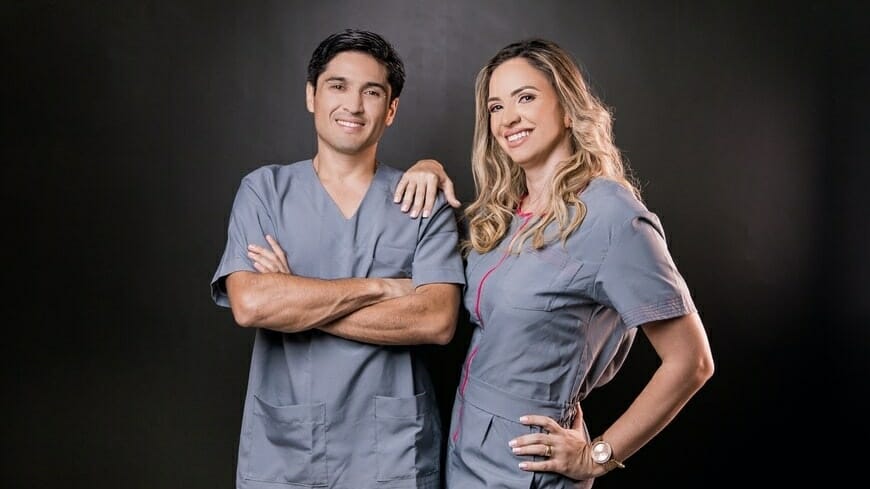How to Prepare for Medical School Entrance Exams in Serbia

Table of Contents
- 1 Guide to Preparing for Medical School Entrance Exams in Serbia
- 2 What are medical school entrance exams in Serbia like?
- 3 Which medical universities in Serbia to apply to
- 4 5 essential tips for preparing for medical school entrance exams in Serbia
- 5 Surprise mini-exam
- 6 Strategies for managing stress during the exam preparation process
- 7 Conclusion
Guide to Preparing for Medical School Entrance Exams in Serbia
Medical Universities in Serbia attract more and more international students each year, and with good reason. The country is known not only for its rich history and beautiful nature but also for being home to some of Europe's top medical schools. Their universities have a proven track record of producing highly skilled and knowledgeable doctors, which makes the question, "How to prepare for medical school entrance exams in Serbia?" all the more pressing.
Preparing for medical entrance exams can be difficult and stressful, as they can define your whole life ahead of you. However, with the right approach, proper research and high-quality study materials, you can significantly improve your chances of success. This guide will provide you with everything you need to know about preparing for medical school entrance exams in Serbia.
What are medical school entrance exams in Serbia like?
Typically, entry exams for medical universities differ significantly for each individual establishment; however, the top medical schools in Serbia all agree that it is best to hold tests consisting solely of MCQs (Multiple-Choice Questions) followed by an interview. By applying this assessment method, the examining committee can evaluate your knowledge in Biology and Chemistry via written exams while also getting insight into who you are as a person and whether you have the passion and interpersonal skills to become a doctor. Your English proficiency will also be tested, either during an interview or with a written exam.
Depending on the circumstances, some universities elect to hold online exams and interviews, while others ask you to be physically present. It is essential to check each establishment's stance and determine how you will take your respective assessments.
The topics covered in the entrance exam in the Biology section include, but are not limited to:
- Cell Biology
- Prokaryotic and eukaryotic cell
- Cell Membrane
- Cytoplasm
- Nucleus
- Cell division and cell cycle
- Animal Physiology
- Nervous system
- Senses
- Body fluids
- Circulatory system
- Respiratory system
- Digestive system
- Excretory system
- Osmoregulation
- Endocrine glands
- Humoral regulation
- Thermoregulation
- Developmental Biology
- Reproduction of animals
- Gametogenesis
- Fertilisation
- Early stages of embryogenesis and organogenesis
- Extraembryonic membranes
- Ageing
- Human development and pregnancy
- Molecular Biology
- Nucleic acids and proteins
- DNA replication
- Transcription
- Translation
- Regulation of gene expression
- Recombinant DNA technology
- Genetics
- Basic principles
- Inheritance of blood groups
- Genetic control of development
- Sources of Genetic Variability
- Recombinations
- Mutations
- Population Genetics
- Human Genetics
The topics covered in the entrance exam in the Chemistry section include, but are not limited to:
- General Chemistry
- Atomic structure. The periodic table of elements
- Chemical bonds
- Fundamental chemical laws
- Energy changes in chemical reactions
- The rate of chemical reactions. Chemical equilibrium.
- Classification of inorganic compounds
- Solutions
- Electrolyte solutions
- Neutralisation. Hydrolysis. Buffer solutions
- Oxidation-reduction reactions
- Inorganic Chemistry
- General characteristics of s-, p- and d-block elements and their compounds
- Organic Chemistry
- Structure and bonding in organic compounds
- Classification of organic compounds
- Isomerism in organic compounds
- Hydrocarbons
- Alkyl and aryl halides
- Organic compounds containing oxygen
- Organic compounds containing sulphur
- Organic compounds containing nitrogen
- Heterocyclic compounds
- Carbohydrates
- Lipids
Which medical universities in Serbia to apply to
As mentioned, Serbia is home to several highly respected medical universities, each offering unique strengths and advantages. If you want to learn more about studying medicine in Serbia, we have compiled all the relevant information and benefits you get if you decide to study there. When applying, consider factors such as the admission requirements, curriculum, research opportunities, tuition fees and cost of living.
Research each med school individually and make sure to apply to the ones that best suit your needs. Currently, 3 medical universities in Serbia offer medical courses in English, and they are
Each of these establishments is highly accredited and known to produce outstanding medical professionals. The academic year in Serbia generally starts in October but shifts slightly from year to year. Exam dates also depend on a variety of factors and change each year. We have prepared an instructional graphic with the general outline of the information you'll need to consider when choosing which medical schools to apply to:


5 essential tips for preparing for medical school entrance exams in Serbia
Create a study plan
To effectively prepare for medical school entrance exams in Serbia, creating a study plan that includes daily goals and a realistic timeline is essential. Be sure to give yourself ample time to cover all the required material and master each subject area. Break down your study plan into manageable tasks and stay on track. With each passing day, we guarantee you'll grow more confident in your exam-taking skills. By creating a well-structured study plan, you'll take your first step to becoming a successful medical practitioner.
Acquire high-quality study materials
It is essential to have access to high-quality study materials if you're preparing for medical school entrance exams in Serbia. Having the right resources will greatly increase the productivity of your preparation and significantly decrease your overall time consumption. Look into acquiring pre-medicine textbooks, preparatory courses, and practice exams.
All 3 of the respective Serbian medical universities offer their own entrance exam course materials, covering the topics you would get assessed on. Each of them costs around €500 and is meant to prepare you for their specific exams. Buying all of them amounts to a significant sum, so it is crucial to decide which university to apply to before making a purchase.
As the official partner of the University Of Novi Sad, Medlink Students will support you in preparing for the entrance exam to give you a competitive edge over other applicants.
The pre-medicine lectures consist of over 90 hours of material and are part of the Medicine Foundation Course for preparing for medical school entry exams. Attending them will give you all the necessary knowledge to significantly increase your chance of entry into year 1.
There is also the option of enrolling for a full pre-medical year for about €2750. Whether this would work for you depends on your time and financial constraints.
Create and maintain good study habits
Being able to study efficiently will be crucial to your success. Naturally, every person is different, and what works best for you will vary, but there is, however, a set of rules that you should follow.
- Be consistent - get into the habit of studying regularly and often.
- Stay focused - make proper use of your time by eliminating distractions.
- Take breaks - it is impossible to study efficiently without allowing yourself to rest. We recommend breaking up your study sessions into segments and taking breaks at least once every hour.
- Review—revisit the materials you've already studied to ensure you've memorised them. Set up tests to check whether you've properly assimilated everything.
- Reward yourself—you've all heard of the carrot and the stick, right? Be sure to motivate yourself by setting up checkpoints and rewarding yourself when you fulfil your daily goals.
This is just a short list to help you get started on the right foot. If you'd like to read more detailed guides on studying efficiently, our experts at Medlink Students have written fantastic blogs on the topic:
Practise time management
Proper time management is crucial for preparing for med school exams in Serbia. With a lot of material to cover and limited time to do it, it's essential to make the most of your study sessions and ensure you're using your time effectively. One way to do this is by developing a time management plan to balance your study hours with other commitments and activities. Additionally, be sure to prioritise your study sessions based on the importance of each subject area and allocate more time to those that are difficult for you.
Stay motivated
Preparing for exams can be difficult and stressful, making it easy to lose focus and become discouraged. That is why maintaining a positive attitude and employing strategies to keep high spirits is fundamental to achieving success. Using a reward-based system has helped many students overcome their studies, while others prefer tracking their progress and celebrating each successful step they take. What works best for you will be different, which is why we have written an extensive guide on how to get motivated to study.
Surprise mini-exam
Surprise! We've taken the courtesy of preparing a mini-exam to help you assess where you currently stand on your road to preparing for medical school exams in Serbia. These questions have been prepared with the help of materials provided by the University of Novi Sad. Please answer the following multiple-choice questions, and feel free to share how well you did in the comments. Answers will be provided at the end of the blog.
| Biology mini-exam | |
| Which of the following is true? | |
| a) From one spermatogonium, two functional mature spermatozoa become in the process of spermatogenesis. c) In the process of oogenesis, only one functional egg cell is produced. | b)The process of oogenesis in most mammal species begins in puberty and lasts until the end of a female's life d) The process of spermatogenesis is not continuous but has two delays. |
| During neurulation: | |
| a) formation of the endoderm begins c) a neural tube is formed. | a) formation of the endoderm begins c) A neural tube is formed. |
| Information molecules of human development are: | |
| a) mRNA molecules found in the cytoplasm of the egg cell. c) mRNA molecules that synthesise follicular cells. | b) mRNA molecules that are part of the vitelline envelope d) mRNA molecules found in the cytoplasm of spermatozoa. |
| The mother is blood type A, Rh negative, and her child is AB, Rh negative. The father of this child CAN NOT be: | |
| a) B, Rh positive c). B, Rh negative | b) AB, Rh positive d) 0, Rh negative |
| Which of the following stimulates the secretion of gastric juice? | |
| a) gastrin c) chymotrypsinogen | a) formation of the endoderm begins c) A neural tube is formed. |
| Chemistry mini-exam | |
| Which compound is ionic? | |
| a) CaCl2 c) HCl | b) N2O d) SO2 |
| Weak electrolytes are: | |
| a) Na2CO3 and KOH c) HCN and HNO2 | b) CH3COONH4 and AlCl3 d) HNO3 and KCl |
| Calculate the degree of dissociation (α) in % if 750 of 1000 molecules are dissociated. | |
| a) 0.75 c) 75 | b) 750 d) 100 |
| Toluene is: | |
| A) aliphatic hydrocarbon C) aromatic aldehyde | b) aliphatic aldehyde d) aromatic hydrocarbon |
| Reduction of acetophenone leads to the formation of: | |
| a) primary alcohol c) tertiary alcohol | b) secondary alcohol d) carboxylic acid |
Strategies for managing stress during the exam preparation process
Before concluding, we believe it is crucial to address how to properly deal with stress and prevent over-exhaustion. Undergoing stress can severely impact your ability to focus and retain information.
However, effective management strategies can reduce stress and increase your chances of exam success. Here are some strategies to help you tackle the exam preparation process:
- Stick to a reasonable study schedule and avoid overworking yourself.
- Practice relaxation techniques like deep breathing, meditation or yoga.
- Get enough sleep to prevent fatigue.
- Exercise regularly to reduce tension and improve mood.
- Eat a healthy and balanced diet to provide the necessary nutrients, allowing your body and brain to function optimally.
- Seek support from family, friends or a counsellor if you feel overwhelmed or anxious.
Conclusion
To conclude, preparing for medical school entrance exams in Serbia requires research, dedication, discipline, and hard work. Preparing a well-structured study plan, acquiring high-quality study materials, and developing practical time management skills are vital. Additionally, taking care of your physical and mental well-being is crucial to managing stress during your medical university exam preparation. With these strategies, we are certain that you can significantly increase your chances of passing your med school entry exams and achieving your goal of becoming a doctor.
At Medlink Students, we specialise in helping students get into the university of their dreams on their first try. Our expert advisors excel at understanding your situation and circumstances and giving custom-tailored solutions that would work best for you. We handle everything - from the confusing paperwork involved with admission to giving you detailed study plans and high-quality learning materials.
If you want to learn more about studying medicine in Serbia, let's schedule a call. It's completely free and a perfect way to find out the answer to any questions you might have. We'll tell you everything you need to know to start living your dream of becoming a medical professional.
Answers: Biology mini-exam: 1. C), 2. C), 3. A), 4. D), 5. A)
Chemistry mini-exam: 1. A), 2. C), 3. C), 4. D), 5. B)
Leave a Reply


About Medlink Students
Leading international recruitment company for medical students in Europe. British Council Certified Agents. 10+ years of experience and more than 10,000 students advised.








